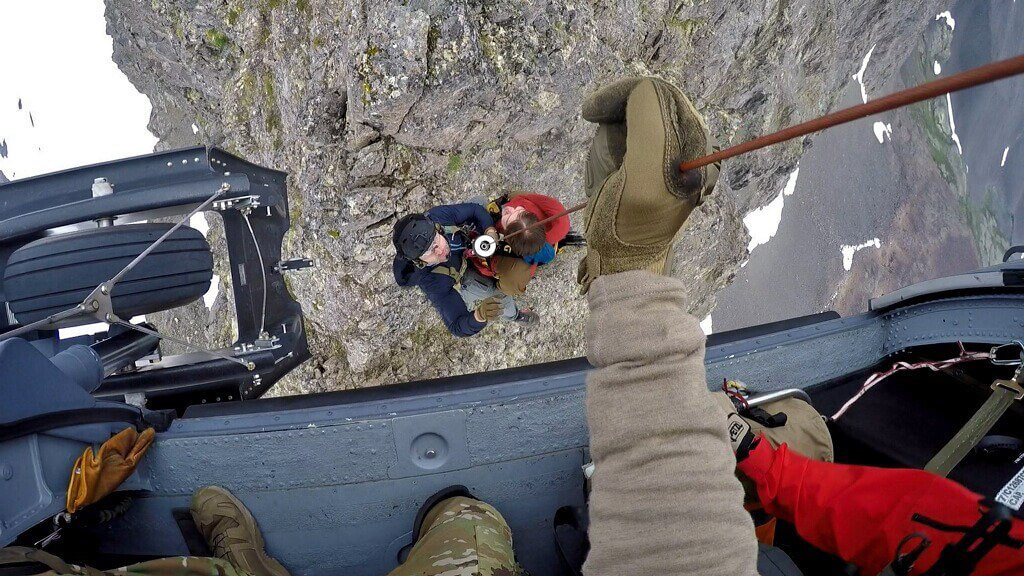JOINT BASE ELMENDORF-RICHARDSON, Alaska – Members of the Alaska Air National Guard’s search and rescue aircrew and pararescue teams saved two stranded hikers on Rainbow Peak trail early May 1.
One of the hikers was injured and unable to continue hiking as nightfall and colder temperatures set in.
The Alaska Rescue Coordination Center received a call from an air ambulance company after they were unable to reach the hikers, who were halfway down a popular trail southeast of Anchorage. The Alaska Air National Guard’s rescue squadrons, which can fly in the dark with night-vision goggles, were called in to help.
The aircrew from the ANG’s 210th Rescue Squadron and pararescue personnel from the ANG’s 212th Rescue Squadron departed Joint Base Elmendorf-Richardson at 1:03 a.m., flew to the hikers’ location, hoisted them into the helicopter, and delivered them to Providence Medical Center in Anchorage at 1:26 a.m.
“It took 23 minutes for them to locate, save and deliver the hikers to medical care,” said Capt. Daniel Dickman, RCC senior controller.
“It was dark and cold, and they had been there for a while before we got the call to assist, so with no overnight or survival gear, they needed help,” said Dickman.
Read: These CA Guard soldiers received the Distinguished Flying Cross for their heroic wildfire rescue
Rainbow Peak trailhead may be accessed along the Seward Highway, about six miles past Potter’s Marsh, near the small community of Indian. According to Alltrails.com, it’s a moderately trafficked, 5.8-mile roundtrip trail rated as difficult.
“We flew up and over Flattop to Rainbow, and as soon as we came over the ridge, we saw the light from their flashlight or cell phone,” said Lt. Col. Jeremy Groat, commander of the 210th RQS. “The NVG (night-vision goggles) intensifies any light source, so they were easy to spot.
“We pulled into a hover just downslope from them, saw they were hunkered down, and then went and hovered over them,” said Groat. “We sent down both PJs, each with a rescue strop, then hoisted each patient up one at a time with a PJ.”
The hikers had cell phone service, but that is not something outdoor enthusiasts can count on in Alaska.
“We recommend always having some form of communication and a backup form of service, such a beacon or satellite tracker,” said Dickman.
“Even on a day trip, hikers should always be prepared to stay warm if they have to hold up overnight,” said Dickman. “It’s worth carrying the extra gear, such as additional clothing, food, plenty of drinking water, and an iodine tablet in case they need to drink from a local water source.”
For this rescue, 210th RQS, 212th RQS and AKRCC were awarded two saves.
This is story originally appeared on www.nationalguard.mil.

